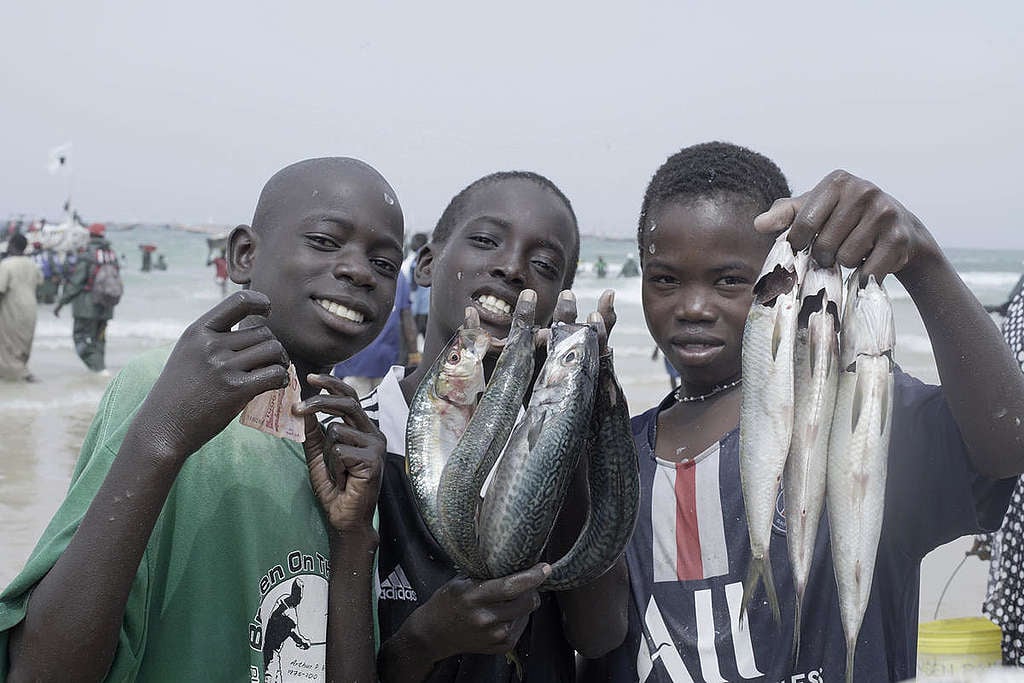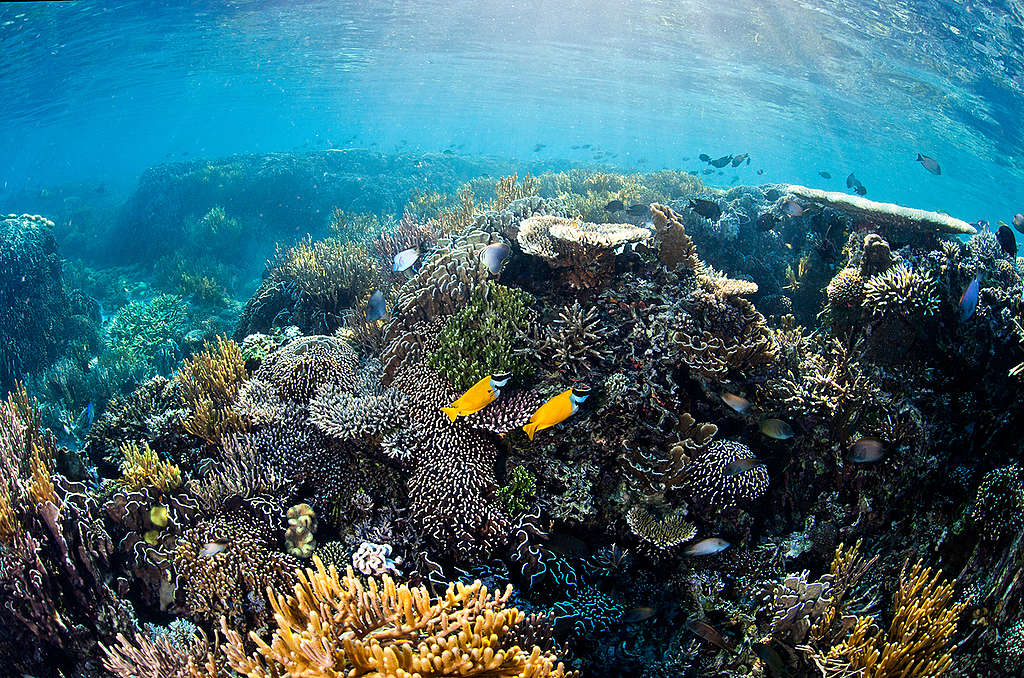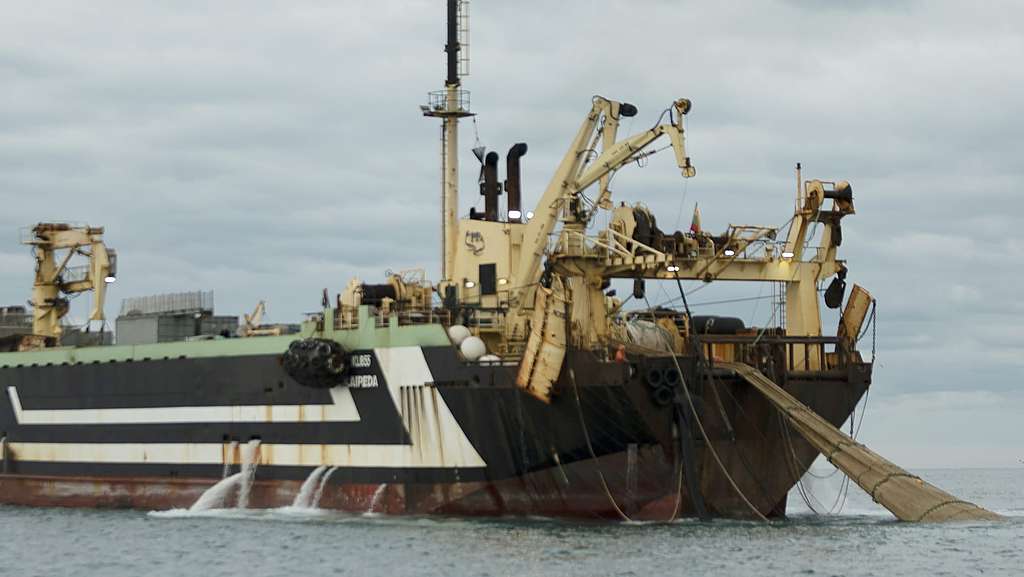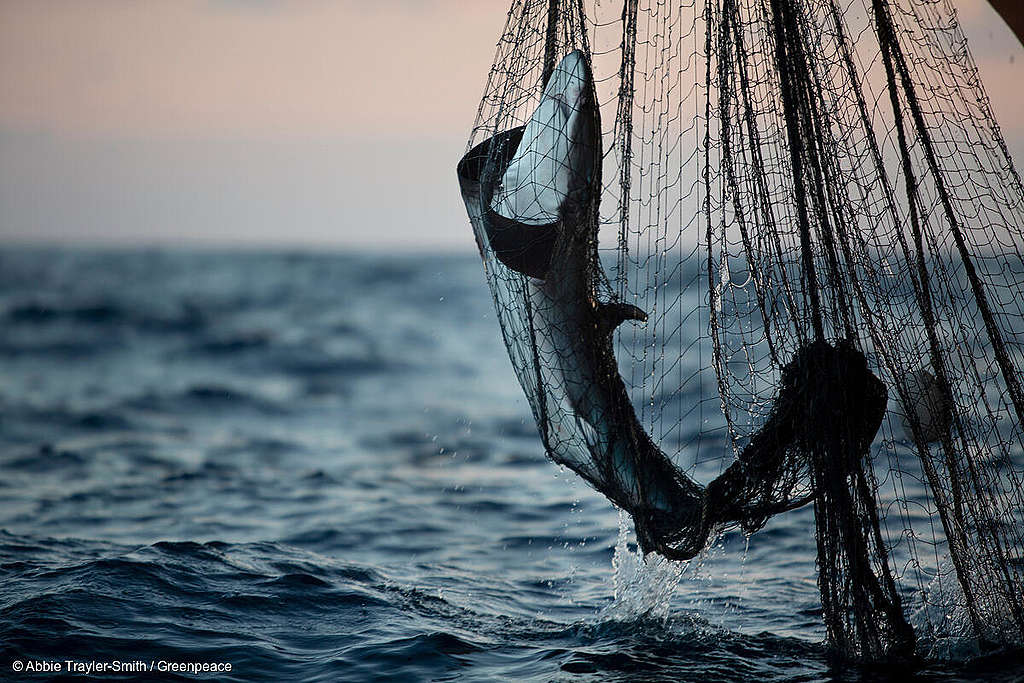We all rely on the oceans for our survival, but they’re in serious trouble. Luckily there’s a new UN treaty in the works that could transform how our oceans are protected.
The oceans are a mysterious and wonderful place, home to a staggering variety of different animals and habitats. They bring joy and life to billions of people around the world. Yet you only need to glance at the news these days (at your own peril) to see that our oceans are in big trouble.
They’re facing so many different threats – industrial fishing, oil drilling, the climate crisis and even deep sea mining (I’m still hoping that this a dream and Dr Evil is holding the world to ransom for 100 million gazillion dollars – but sadly there actually is a whole industry that wants to mine the seafloor).
If our oceans are in trouble then so are we – they produce half of the Earth’s oxygen. Not only that but the deep sea is our planet’s largest reservoir of stored carbon – so they are vital for tackling the climate crisis. Not to mention that over three billion people rely on the oceans for their diet or livelihoods.

New ‘Marine Protected Areas’ can help damaged oceans recover
The good news is that when our oceans are left alone to recover they show an incredible ability to bounce back. And the best way to allow them to recover is to create a network of Marine Protected Areas (MPAs). These are areas where all harmful activities like industrial fishing are banned.
Less than 1% of the global oceans (or high seas) are properly protected – these are oceans outside of national borders.
Enter the Global Ocean Treaty
At the moment, there’s no way to create ocean sanctuaries outside of national waters – the legal mechanism for countries to agree on something like this simply doesn’t exist.
This is where the Global Ocean Treaty (GOT) comes in. Not GOT as in Game Of Thrones so don’t expect to see dragons patrolling the oceans for illegal fishing fleets.
The Global Ocean Treaty is an international agreement – currently under negotiation by governments at the UN – that would make it possible to properly protect the high seas from industrial fishing and other destructive human activities.
For the first time in history it could allow a vast network of MPAs to be created across the global oceans. This would be great news for whales and sharks, but also for the fight against the climate crisis.

Why the treaty is important
The way our global oceans are managed right now is very fragmented and it favours destructive industries rather than protection. The patchwork of regional and sector-specific authorities that currently run the show have repeatedly failed to protect the high seas.
You may also have heard about some MPAs that already exist – either in individual countries’ national waters, or special areas like the Antarctic.
Sadly, too many of these are so-called ‘paper parks’ with lax enforcement, or rules too weak to offer true protection.
These new MPAs would be different in two ways. Firstly, they’d actually work – with strict rules and well-funded enforcement. And secondly, they’d be in places that it wouldn’t have been possible to protect before.

What does a strong Global Ocean Treaty look like?
We need to protect at least 30% of the world’s oceans by 2030. That’s the minimum amount of protection required this decade that would allow our oceans to properly recover.
A strong Global Ocean Treaty is essential to achieving this by providing the tools necessary to switch on ocean protection, empowering governments to set conservation goals that they can actually deliver. It would have a momentous impact on marine ecosystems, the climate crisis and the planet as a whole.
Threats to the treaty
The crucial final round of the Global Ocean Treaty negotiations are planned to go ahead in the coming months. And although they’re likely to reach some kind of agreement, a strong treaty won’t happen by itself.
As with most environmental issues there’s lots of money and power in maintaining the status quo. And destructive and greedy industries continue to lobby governments against ocean protection, so there’s never been a more important time to make our voices heard.

A weak treaty would see governments pass the buck for managing any global MPAs onto regional and sectoral organisations or bodies incapable of the task. The Treaty would then lack teeth to make sure conservation and protection are at the heart of decisions, and business as usual could continue.
To counter this, politicians need to see a popular movement for ocean protection, both in their individual countries and worldwide. By coming together and speaking out, we can give encouragement to the politicians that are already pushing for change, and force the cautious or undecided countries to properly back a strong treaty.



